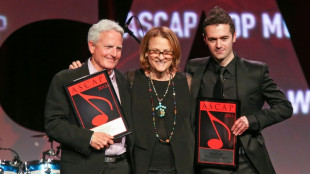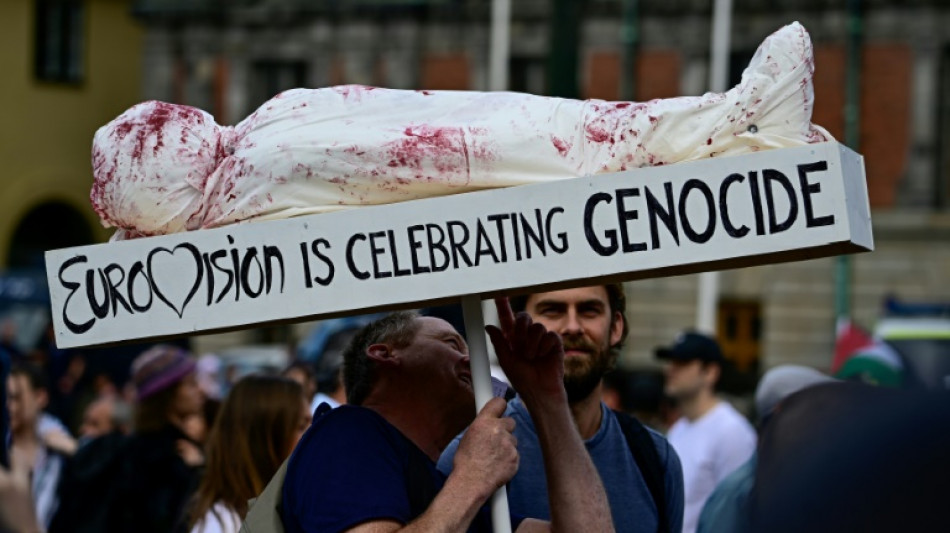
-
 Bowlers, selectors under fire after Australia's T20 World Cup exit
Bowlers, selectors under fire after Australia's T20 World Cup exit
-
Racism allegations overshadow Real Madrid victory as PSG win in Champions League

-
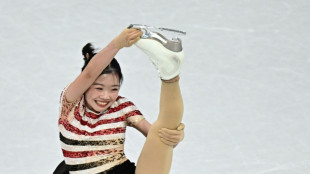 Japan's Nakai shines on ice as Frostad soars to Olympic big air gold
Japan's Nakai shines on ice as Frostad soars to Olympic big air gold
-
Japanese teen Nakai leads Sakamoto after Olympic women's short programme
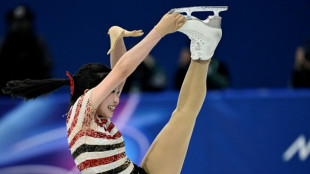
-
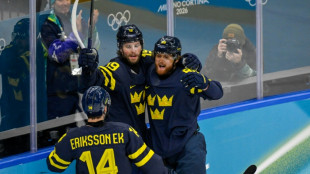 Sweden to face USA in Olympic men's ice hockey quarter-finals
Sweden to face USA in Olympic men's ice hockey quarter-finals
-
Alexander-Arnold hits out at 'disgusting' alleged Vinicius racism

-
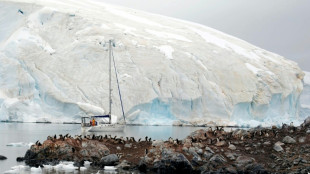 Bird flu ravaging Antarctic wildlife, scientist warns
Bird flu ravaging Antarctic wildlife, scientist warns
-
Nakai leads Sakamoto in Olympics after women's short programme
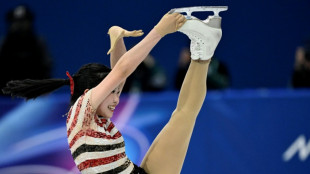
-
 Guirassy guides Dortmund past Atalanta in Champions League play-offs
Guirassy guides Dortmund past Atalanta in Champions League play-offs
-
Vinicius stunner helps Real Madrid edge Benfica in play-off marred by alleged racism
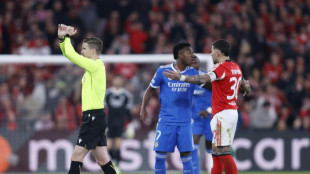
-
 Doue inspires PSG to comeback Champions League win in Monaco
Doue inspires PSG to comeback Champions League win in Monaco
-
'Climate cult' hurts Europe's economy, US energy secretary tells AFP
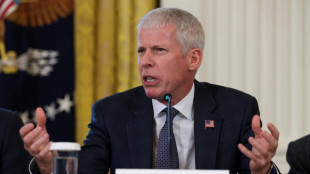
-
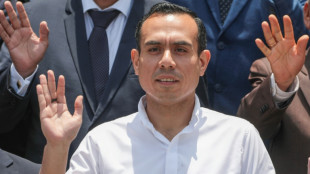 Peru's presidential musical chairs
Peru's presidential musical chairs
-
France arrests nine over far-right activist's killing
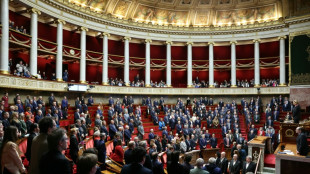
-
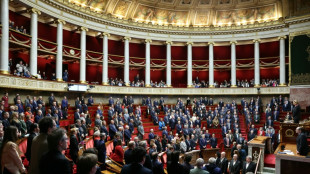 France arrests seven over far-right activist's killing
France arrests seven over far-right activist's killing
-
Frostad dethrones Ruud in Olympic freeski big air thriller

-
 Galatasaray thrash 10-man Juve in Champions League play-off 1st leg
Galatasaray thrash 10-man Juve in Champions League play-off 1st leg
-
Woods return timeline uncertain, but won't rule out Masters
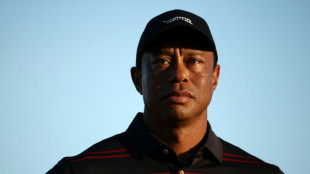
-
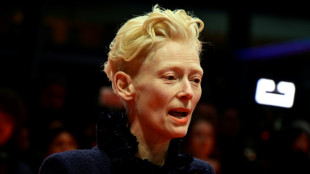 Dozens of film figures condemn Berlin Film Festival 'silence' on Gaza
Dozens of film figures condemn Berlin Film Festival 'silence' on Gaza
-
Iran, Ukraine talks spark diplomatic merry-go-round in Geneva

-
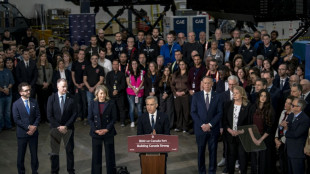 Canada launches huge defence plan to curb reliance on US
Canada launches huge defence plan to curb reliance on US
-
US says will match alleged Chinese low-yield nuclear tests
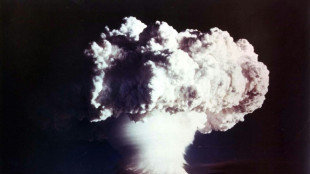
-
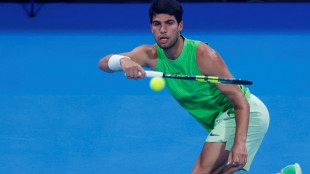 Alcaraz battles into second round of Qatar Open
Alcaraz battles into second round of Qatar Open
-
Russians, Belarusians to compete under own flags at Paralympics: IPC tells AFP

-
 Bayer proposes class settlement for weedkiller cancer claims
Bayer proposes class settlement for weedkiller cancer claims
-
Gauff, Rybakina cruise into Dubai last 16
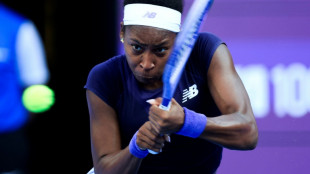
-
 Greenland entrepreneur gambles on leafy greens
Greenland entrepreneur gambles on leafy greens
-
Father of US school shooter goes on trial on murder charges
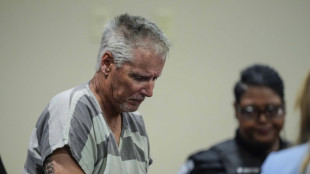
-
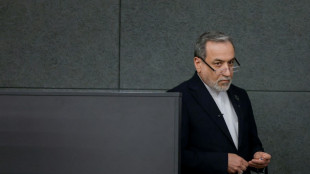 Iran, US agree on 'guiding principles' for deal at Geneva talks: Iran FM
Iran, US agree on 'guiding principles' for deal at Geneva talks: Iran FM
-
Warner Bros. gives Paramount one week to outbid Netflix
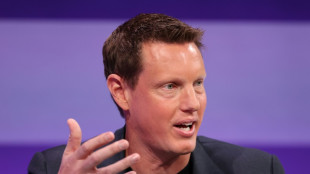
-
 Russians, Belarusians allowed to compete under own flags at 2026 Paralympics: IPC tells AFP
Russians, Belarusians allowed to compete under own flags at 2026 Paralympics: IPC tells AFP
-
Ukrainian wife battles blackouts to keep terminally ill husband alive

-
 Pollock handed first England start for Ireland visit
Pollock handed first England start for Ireland visit
-
Oil prices fall back as 'hopeful' Tehran responds to Trump
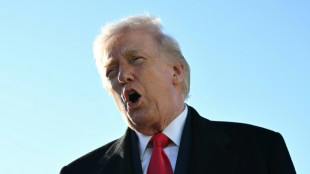
-
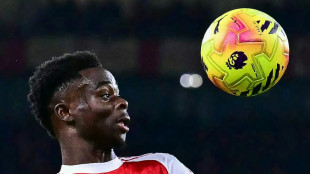 Arteta welcomes Madueke and Saka's competition for places
Arteta welcomes Madueke and Saka's competition for places
-
France and India hail growing ties as Modi hosts Macron
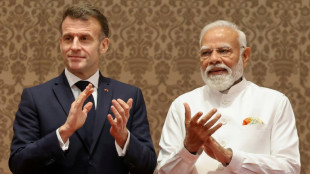
-
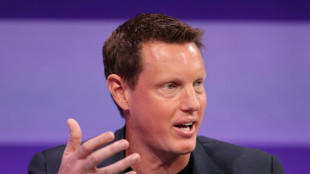 Warner Bros. says reopening talks with Paramount on its buyout offer
Warner Bros. says reopening talks with Paramount on its buyout offer
-
Slalom showdown Shiffrin's last chance for Milan-Cortina medal

-
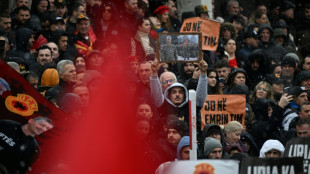 Protesters march in Kosovo, as ex-president's war crimes trial nears end
Protesters march in Kosovo, as ex-president's war crimes trial nears end
-
No pressure on India opener Abhishek after two ducks, says coach
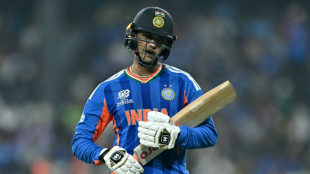
-
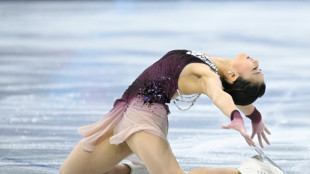 Sakamoto eyes figure skating gold in Olympic farewell
Sakamoto eyes figure skating gold in Olympic farewell
-
Pereira 'trusts' Forest owner Marinakis despite three sackings this season
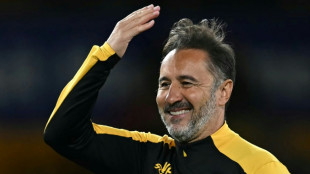
-
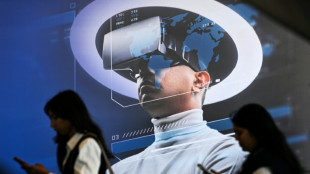 AI 'arms race' risks human extinction, warns top computing expert
AI 'arms race' risks human extinction, warns top computing expert
-
Israeli bobsleigher dismisses Olympics 'diatribe' by Swiss TV commentator

-
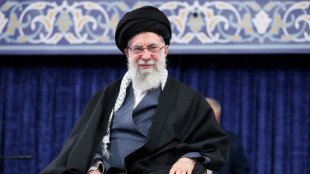 Supreme leader says Iran can sink US warship as Geneva talks conclude
Supreme leader says Iran can sink US warship as Geneva talks conclude
-
Australia, Ireland out of T20 World Cup as Zimbabwe qualify after washout

-
 Greece experts to examine Nazi atrocity photos find
Greece experts to examine Nazi atrocity photos find
-
Los Angeles mayor calls for 2028 Olympics chairman to step down over Epstein files
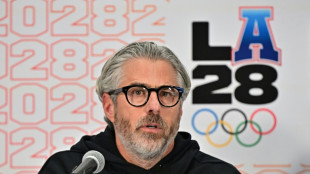
-
 Evenepoel takes UAE Tour lead with time-trial win
Evenepoel takes UAE Tour lead with time-trial win
-
Oil prices rise as Trump ramps up Iran threats
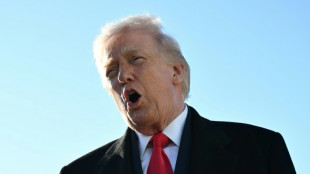

Depoliticising Eurovision 'impossible', experts say
The Eurovision Song Contest is meant to be about celebrating music and cultural diversity, but politics inevitably seeps in, challenging the competition's long-standing claim to neutrality.
Hopeful artists drawn from 37 countries will compete in this year's contest in the Swiss city of Basel starting next week, with the big finale on May 17.
Politics is officially barred from the event, but as with most years, organisers will have their hands full striving to keep tensions over culture wars and conflicts like Israel's war in Gaza from spilling into the glitzy festivities.
Experts agree that is a tall order.
"It's impossible to depoliticise the event," Dean Vuletic, a historian and the author of the book "Postwar Europe and the Eurovision Song Contest", told AFP.
"It is completely impossible," agreed Jess Carniel, an associate professor at the University of Southern Queensland in Australia.
"With everyone competing under their national flag... there is always an undercurrent of politics."
From the inception of the contest nearly 70 years ago, the European Broadcasting Union (EBU), which organises Eurovision, has insisted on its non-political nature.
But politics have been omnipresent, from an Austrian protest over Spain's Franco dictatorship in 1969 to calls for European unity as the Soviet Union broke apart and Eastern European countries joined the contest in the early 1990s.
- Mass protests -
Before 1998 when Eurovision stopped requiring countries to perform in their national language, some strong political sentiments expressed in songs garnered little attention.
Greece submitted a song in 1976 slamming Turkey over its invasion of Cyprus, "but it was in Greek and there was not much attention", Lisanne Wilken, an associate professor in European studies at Denmark's Aarhus University, told AFP.
Since then, increased media attention and the possibility to put forth messages in English has meant that for "anyone who wants attention for a cause, Eurovision is a really good place to go", she said.
More recent expressions of political condemnation have certainly not gone unnoticed.
Russia's war in Ukraine dominated the discourse around the events in 2022, when Ukraine won the contest and Russia was barred, and again in 2023.
And last year, Israel's war in Gaza cast a long shadow over the event, when thousands of demonstrators protested in the Swedish city of Malmo against Israeli entrant Eden Golan taking part.
Demonstrations are already planned against Israel's participation this year, with Yuval Raphael -- who survived Hamas's deadly attack inside Israel on October 7, 2023 that sparked the war in Gaza -- due to perform her song "New Day Will Rise".
- New flag rules -
Experts say they do not expect protests on the same level as last year.
One reason, Vuletic suggested, was that "the campaign against Israel last year was not successful".
"No country boycotted Eurovision because of Israel" and the country garnered a high score, he pointed out.
Experts also said the EBU's introduction of new rules may have an impact.
The organisers have adopted a new flag policy, barring contestants from displaying flags other than that of the nation they represent, but loosening restrictions on the flags audience members can display.
Eurovision explained that it aimed to "strike a balance to ensure that our audiences and artists can express their enthusiasm and identities, (while providing) more clarity for the delegations when it comes to official spaces".
"I think the decision was mostly inspired by the references to Palestine last year," Vuletic said.
- Trump effect? -
Wilken meanwhile warned that the new policy could "backfire a little bit", with the ban on contestants waving Pride flags, for instance, possibly read as part of "the war on woke".
Carniel agreed, pointing out that there had been "a bit of a backlash against so-called identity politics at the song contest, and criticism of the extent to which Eurovision has really leaned into queer fandom".
By barring contestants from waving Pride flags or other symbols supporting LGBTQ rights, the organisers might "oddly be trying to bring more people in" by emphasising that the contest "is not an exclusively queer event".
The United States may not be part of the contest, but experts said President Donald Trump's anti-diversity messaging could energise efforts by conservative forces in Europe eager to rid Eurovision of its LGBTQ-friendly identity.
At the same time, the Trump administration's attacks on European countries could strengthen the contest's focus on forging a common European identity, Carniel suggested.
"Given the current political climate," she said, "that idea of European unity against the outside is a strong thing."
H.E.Young--AMWN
